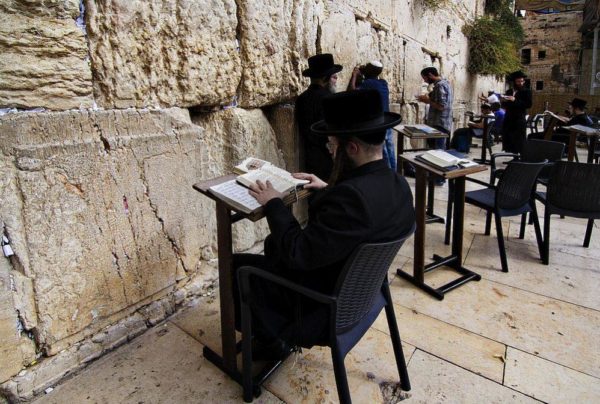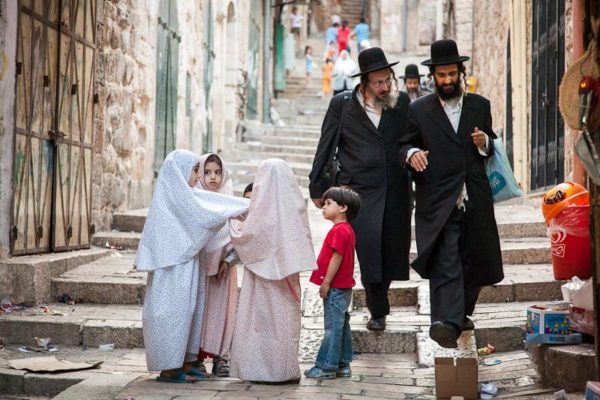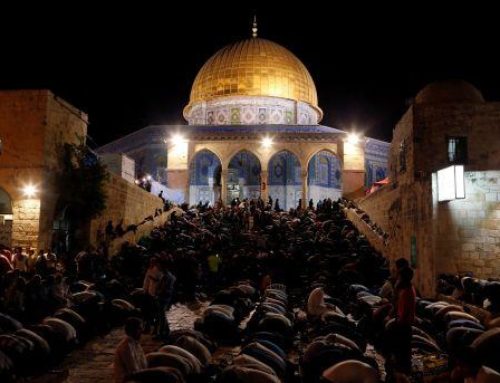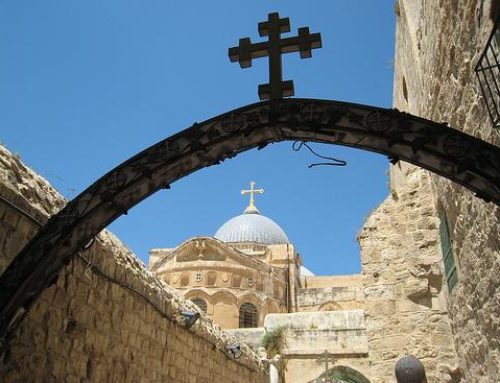
The City of Prophets and Kings
Abraham, the first prophet of the Jewish people, came to bind his son Isaac on mount Moriah in Jerusalem, and where the Jews believe God’s word was fully revealed.[3][4] the binding of Isaac, known also as the Akedah, is crucial to Jewish faith, according to the Bible, God asked Abraham to sacrifice his son Isaac on Mount Moriah to test his obedience and honesty, to which Abraham agrees and prepares to slaughter Isaac but stops minutes before when God sends an angle to inform him to spare Isaac and sacrifice a ram instead.[5]
Rise and Fall of the Jewish Kingdom
Jerusalem witnessed the rise of the Jewish kingdom when the Prophet and King David conquered Jerusalem and made it the capital of his kingdom. According to the Jewish tradition, this move helped to preserve unity of the Israelites who, for decades prior, had been wandering the desert, punished by God for their continuous disobedience, and prevented from entering the promised land. [6].
But the kingdoms of David and Solomon ended. The First Temple was destroyed by Nebuchadnezzar the king of Babylonian, who also expelled the Jews from the holy land,, according to the Jewish narratives, the kingdom split into two warring kingdoms: Israel in the south and Judah in the north. Jerusalem became the capital of Judah alone.[7]
Another low point in the history of Jerusalem for the Jews was when the second temple, built by Herod, was destroyed by Titus the Roman general[8] around 70 AD.The Jews were expelled, once again,from Jerusalem and were prohibited from entering the city many years. They faced expulsion for many years until 638 AD, when Jerusalem was under Muslim rule, when they were allowed to live peacefully in the city.

Jerusalem is mentioned many times in the Torah under different names including the land of Yabus–the original Arab inhabitants of city and the city of David.[9]Jerusalem is noted also for being the land of the Jewish prophets and kings– where they lived, preached and died.[10] Jews also pray facing the direction of Jerusalem and some perform pilgrimage there each year to celebrate the festivals of Passover, Shavuot, and Sukkoth.[11]
Jewish Holy Sites
Jews argue that the western wall of Al-Aqsa which they call Wailing Wallis the only remaining part of the first temple of Solomon. The wall is located in the Moroccan Quarter of the Old City. he Since the Israeli occupation, the original neighborhood has been completely destroyed and replaced with a Jewish neighborhood and an emptied space in front of the wailing wall for Jews to pray in.[12]
According to various Jewish traditions the temple of Solomon was home to the founding stone from which the whole universe was created and the site where Abraham bound Isaac for sacrifice.[13] They also argue that the Tomb of David exists on mount Zion ,which is located, and that the Olive Mountain is home to an ancient Jewish cemetery in which Jews have been buried for centuries.[14]
[1] Temple here refers to the worship house built by king Solomon in the 10 century BC. it was destructed by Nebuchadnezzar in the fourth century BC and rebuilt by Herod the Great, a Roman King of Judea in the sixth century BC just to be destructed again by Titus, a Roman commander in 70 AD.
[2] Gershon Baskin, Jerusalem of Peace: Sovereignty and Territory in Jerusalem’s Future (Israel/Palestine Center for Research and Information, 1994), 31 and “What Makes Jerusalem so Holy,” last modified October 30, 2014, https://www.bbc.com/news/world-middle-east-26934435
[3] Baskin, Jerusalem of Peace, 31
[4] “Yerushalayim Jerusalem the Holy City,” http://mfa.gov.il/MFAAR/InformationaboutIsrael/Jerusalem/Pages/jerusalem-%20the%20holy%20city.aspx
[5] “The Binding of Isaac,” https://www.myjewishlearning.com/article/the-binding-of-isaac/
[6] Baskin, Jerusalem of Peace, 34-35
[7] Joseph Millis, Jerusalem: the Illustrated History of the Holy City (London: Andre Deutsch, 2012),
[8] Baskin, Jerusalem of Peace, 31
[9] Habib Ghanem, Jerusalem: a History and a Cause (Lebanon: Dar Al-Manhel, 2002),
[10] “The Jewish Connection to Jerusalem,” https://www.myjewishlearning.com/article/the-jewish-connection-to-jerusalem/
[11] “Yerushalayim Jerusalem the Holy City,” http://mfa.gov.il/MFAAR/InformationaboutIsrael/Jerusalem/Pages/jerusalem-%20the%20holy%20city.aspx
[12] “What Makes Jerusalem so Holy,” last modified October 30, 2014, https://www.bbc.com/news/world-middle-east-26934435
[13] “What Makes Jerusalem so Holy,” last modified October 30, 2014, https://www.bbc.com/news/world-middle-east-26934435
[14] “Yerushalayim Jerusalem the Holy City,” http://mfa.gov.il/MFAAR/InformationaboutIsrael/Jerusalem/Pages/jerusalem-%20the%20holy%20city.aspx



